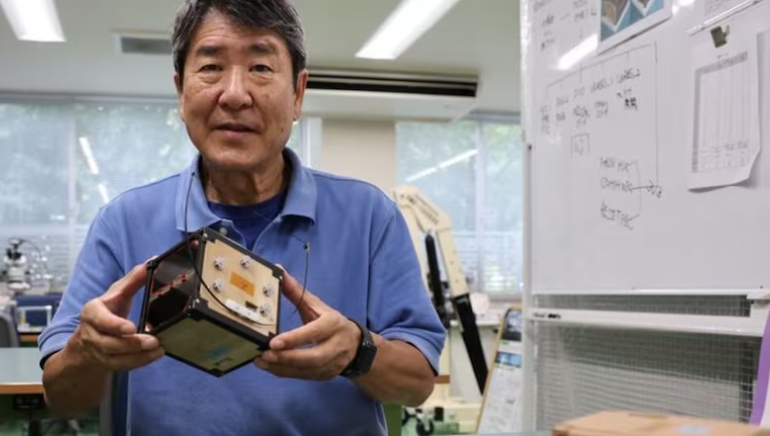Japan achieved a milestone in sustainable space exploration by launching “LignoSat,” the world’s first wooden satellite. LignoSat, developed by Kyoto University researchers and homebuilder Sumitomo Forestry, was launched to the International Space Station (ISS) on Tuesday onboard a SpaceX mission, where it will orbit approximately 400 kilometres above Earth.
LignoSat, made of honoki wood, a type of Japanese magnolia usually used in sword sheaths, is designed to evaluate the durability of timber in space. The satellite, inspired by early wooden aircraft, was made without screws or glue, demonstrating Japan’s traditional woodworking traditions as well as the possibilities of renewable materials in space technology.
Takao Doi, an astronaut and a professor at Kyoto University, considers timber a potential material for space habitats. “With timber, a material we can produce ourselves, we can build houses, live, and work in space indefinitely,” Doi added, emphasising its sustainability. The spacecraft will operate in temperatures ranging from -100°C to 100°C, and researchers will assess its ability to shield critical components from cosmic radiation.
LignoSat’s eco-friendly design has advantages over metal satellites, which emit hazardous aluminium oxide during re-entry.















